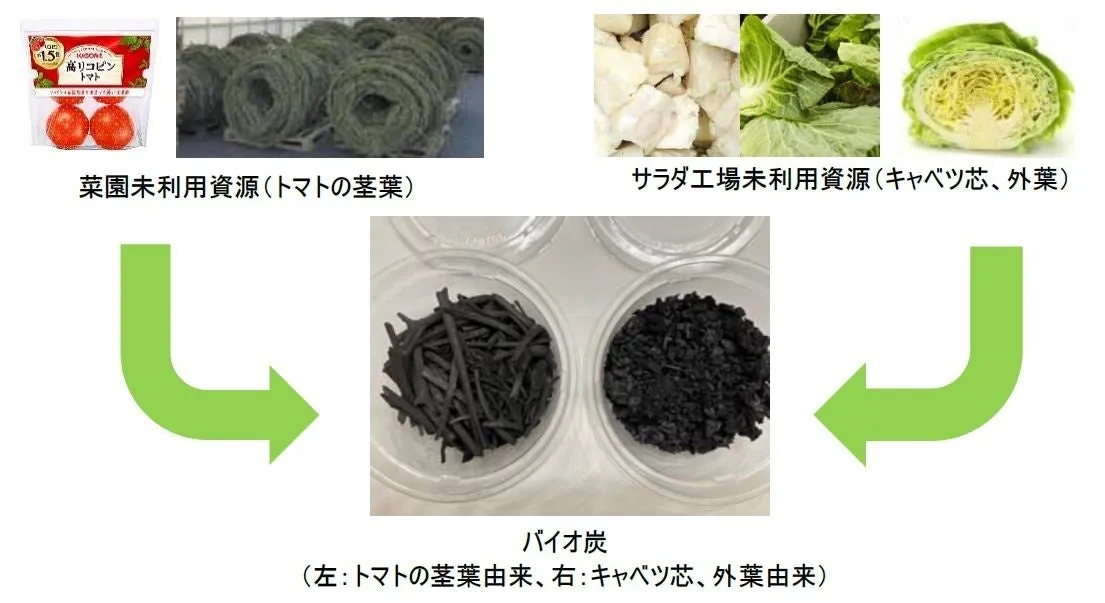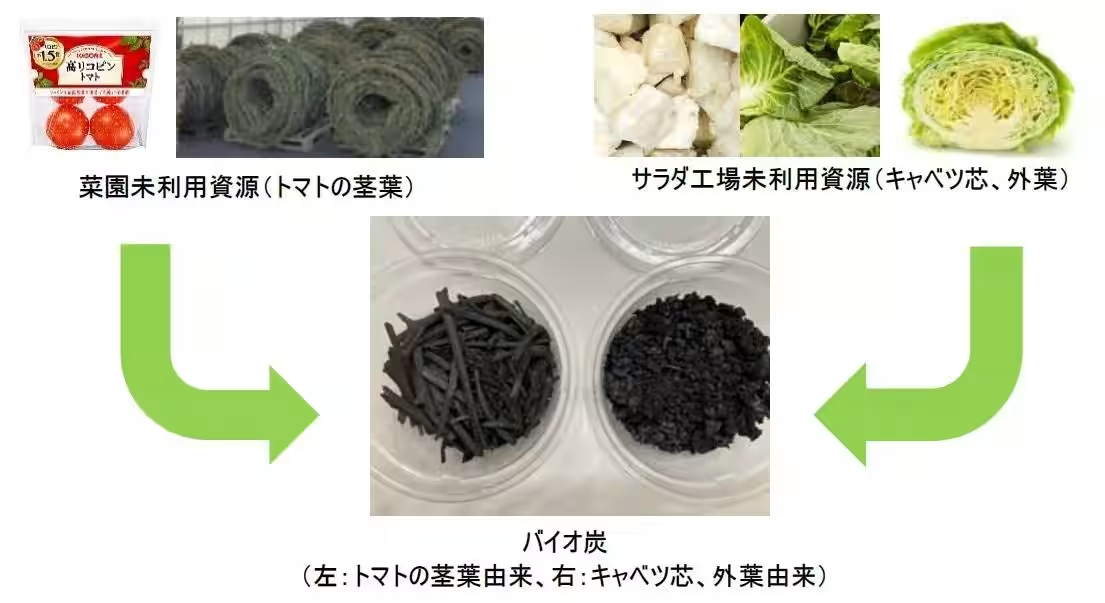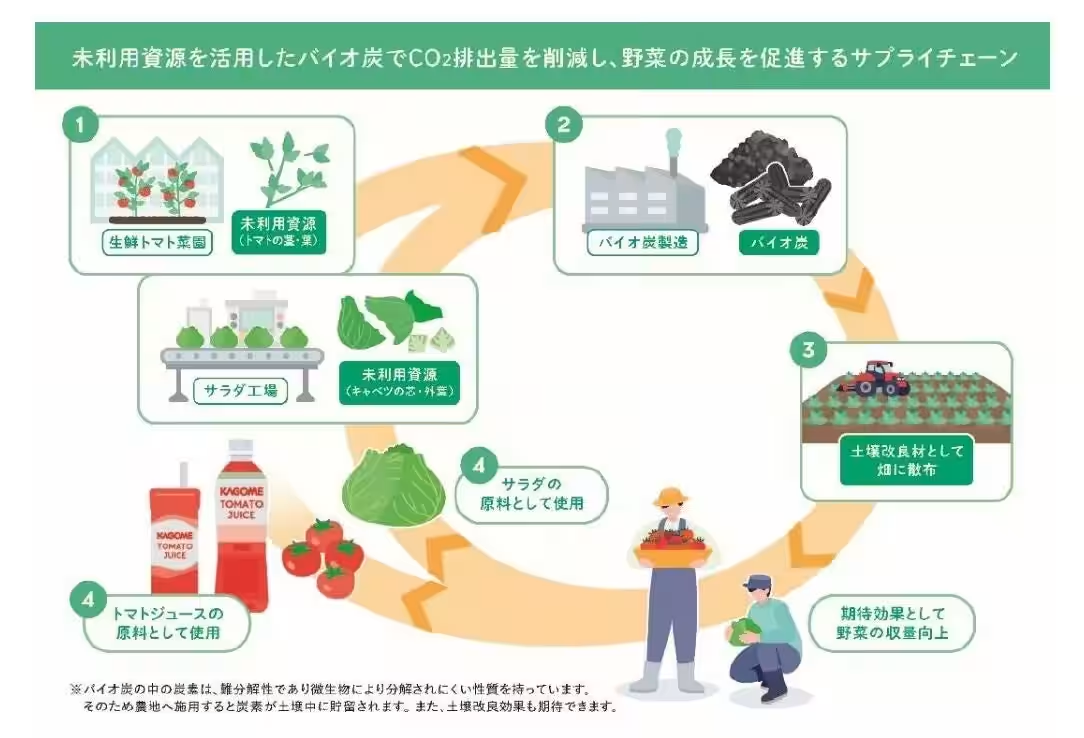

Kewpie and Kagome Launch Joint Research on Biochar from Unused Vegetable Resources
Kewpie and Kagome Join Forces for Sustainable Agriculture Through Biochar
In a significant step towards sustainability in agriculture, Kewpie Corporation and Kagome Company have initiated joint research aimed at converting unused vegetable resources into biochar. Both companies, well-known in the vegetable processing sector, are committed to tackling sustainability challenges related to vegetable cultivation and processing. This collaboration seeks to make meaningful contributions toward achieving sustainable agricultural practices.
Understanding Biochar
Biochar is produced by heating plant-based biomass in an environment with limited oxygen, leading to carbonization. This process results in a product that can enhance soil quality and contribute to carbon storage. Unlike regular compost, biochar is less prone to decomposition, allowing it to remain in the soil for extended periods. This quality makes it particularly attractive in the efforts to combat climate change and promote sustainable agricultural practices.
Context and Necessity
The urgency for climate change mitigations and sustainable agricultural practices has never been more pronounced. The Japanese Ministry of Agriculture, Forestry, and Fisheries (MAFF) has highlighted the promotion of biochar use in agricultural lands as part of its 'Green Food System Strategy.' Research indicates that biochar not only improves soil quality but also plays a crucial role in carbon sequestration. Despite the benefits, underutilized resources such as crop residues and processing waste in vegetable production continue to pose challenges. Both Kewpie and Kagome aim to address this issue by fostering a sustainable society that values nature's bounty.
Objectives of the Joint Research
The joint research project has several key objectives:
1. Establishing Biochar Production Techniques: The first task will be to develop effective technologies for converting high-water-content vegetable resources into biochar. This includes optimizing dehydration methods and establishing effective carbonization technologies.
2. Evaluating Agricultural Characteristics of Biochar: The research will assess the agricultural benefits of vegetable-derived biochar, focusing on its effects on soil improvement and crop growth enhancement.
3. Creating a Carbon-Negative Business Model: Through the production and utilization of biochar, both companies aim to achieve carbon fixation and reduction of CO2 emissions. They also plan to utilize the J-Credit system, which certifies the amount of greenhouse gas emissions reduced or absorbed as credits, to further support a carbon-negative business model.
Future Developments
The research will progress through a series of steps:
- - Establishing technologies for biochar production, including checking carbonization conditions and dehydration methods.
- - Evaluating agricultural characteristics when applying biochar.
- - Producing biochar samples.
- - Conducting test applications of biochar.
These efforts aim not only to leverage unused vegetable resources effectively but also to enhance soil quality on agricultural lands while contributing to CO2 reduction efforts.
Company Profiles
Kewpie Corporation
- - CEO: Mitsu Takamiya
- - Location: 1-4-13 Shibuya, Shibuya-ku, Tokyo 150-0002, Japan
- - Revenue: JPY 483.9 billion (FY2024)
- - Employees: 10,517 (as of Nov 2024)
- - Business Domain: Manufacturing and sales of mayonnaise and other sauces.
Kagome Company
- - CEO: Satoshi Yamaguchi
- - Location: 3-14-15 Nishiki, Naka-ku, Nagoya 460-0003, Japan
- - Revenue: JPY 306.8 billion (FY2024)
- - Employees: 3,184 (as of Dec 2024)
- - Business Domain: Manufacturing and sales of seasoning foods, preserved foods, beverages, seeds, and development of health support services.
For further information:


Topics Consumer Products & Retail)










【About Using Articles】
You can freely use the title and article content by linking to the page where the article is posted.
※ Images cannot be used.
【About Links】
Links are free to use.